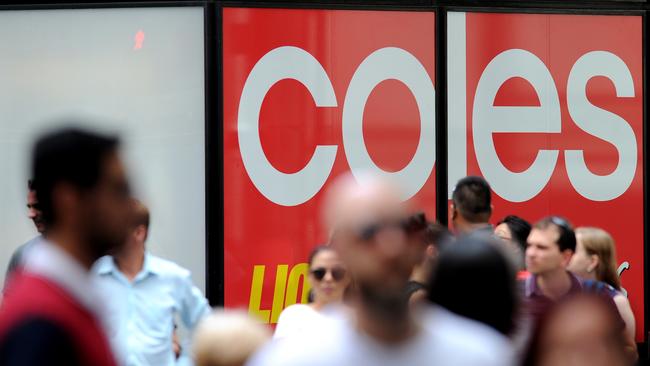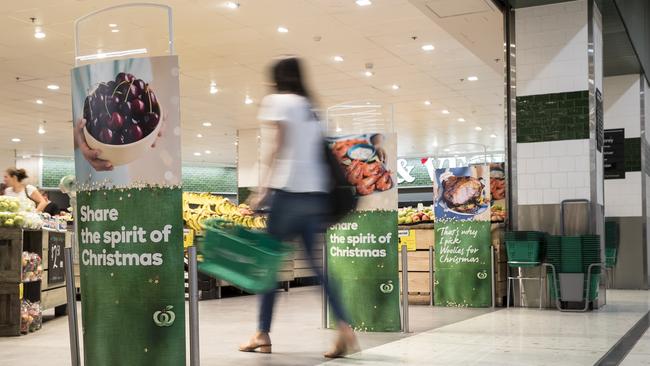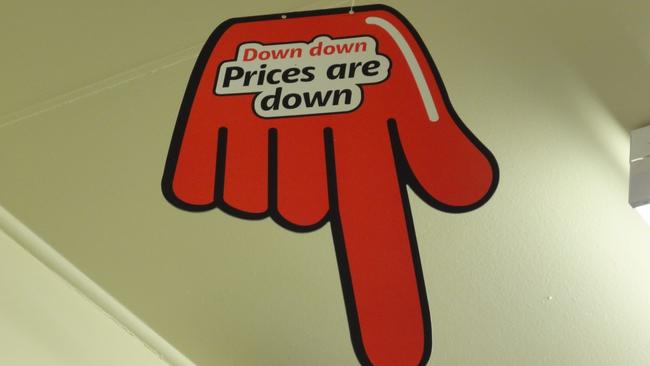Rise in price of barbecue chickens may mark truce in supermarket wars
A quiet $1 rise in the price of barbecue chickens could be a sign that supermarkets will cut back on aggressive discounting.

The decade-long supermarket price wars, which have been a boon for bargain-hungry shoppers but a costly expense for retailers, could be creeping towards a ceasefire — and it could all come down to the price of a barbecue chicken.
A few weeks ago, according to a Wall Street bank, Coles tested the market in a number of regional supermarkets by lifting by $1 the price of those barbecue chickens sold from in-store warmers.
Major rival Woolworths quickly followed by matching Coles’ price rise.
In a kind of strange retail chicken dance, Coles then rolled out the $1 price rise nationwide and again Woolworths matched it.
To shoppers it doesn’t seem to have made much difference, and has gone without little commentary.
But for Bank of America Merrill Lynch analyst David Errington it is cause for optimism that the “race to the bottom” on prices — that has seen Woolworths and Coles aggressively slash prices in a prolonged price war — could be at an end, as rational pricing returns to the supermarket sector.
He views the 12 per cent price hike for barceue chickens as part of an “industry-changing event” that will put an end to the price wars that have severely eroded supermarket profitability, and as customers prepare for a return to some modest price inflation in the $90 billion grocery sector.
“Australian food retailers show they don’t ‘hate’ money,’’ Mr Errington said in a note to clients this morning.
“We believe the margins in the Australian supermarket industry have fallen too aggressively in the past two years, and that all participants are likely to allow price inflation to modestly return after a lengthy period of deflation.’’
And it is at the barbecue chicken display that the two major combatants could meet and call a truce — metaphorically of course, because any collusion would be illegal.
It was on Australia Day in 2016 that Coles took its competition by surprise when it slashed the price of barbecue chickens to $8 from $13.
Woolworths was totally unprepared and had not built up enough supply of its own chickens so when it was forced to match that new price it quickly sold out, leaving chicken shelves empty.
Empty shelves are death in the supermarket game.

Coles’ decision to lift prices by $1 represents a reverse of nearly a decade of hacking away at prices that included its infamous unveiling of $1 litre milk on Australia Day 2011.
“From our estimates, at $8 no supermarket makes any profit from selling barbecue chickens and Woolworths sells around 50 million chickens annually and Coles sells just over 40 million,’’ Mr Errington said.
“A $1 price move is material but more importantly to us is a likely symbol that Coles and Woolworths are now looking at ways to improve profitability without compromising competitiveness.’’
Rival retailers drew hope from a recent announcement from Coles that its famous “Down Down” TV ad campaign would take a back seat to a new ad push that would focus on other positive aspects about shopping at Coles, other than price.

Frank Harrison, the boss of Ritchies, the nation’s largest independent supermarket chain, told The Australian he hoped the damaging price wars would end, as they were threatening retailers’ survival.
However, Coles boss John Durkan responded by arguing price deflation was here to stay in the supermarket sector.
Mr Errington believes the announced demerger of Coles from Wesfarmers will also help bring back rational pricing to the industry, as a stand-alone Coles will be less capable of undertaking aggressive price discounting that could hurt the entire industry and lower earnings for all.
“An ongoing strategy of price deflation has been damaging to the industry as earnings across Coles, Woolworths and Metcash have decreased by 30 per cent between 2015 and 2017 and margins have contracted from 5.7 per cent to 4.1 per cent over the same time,” Mr Errington writes.
“In appears to us that the industry has now rebased and is currently in a position where price increases that support higher sales, earnings and cash generation, can be reasonably expected.’’




To join the conversation, please log in. Don't have an account? Register
Join the conversation, you are commenting as Logout